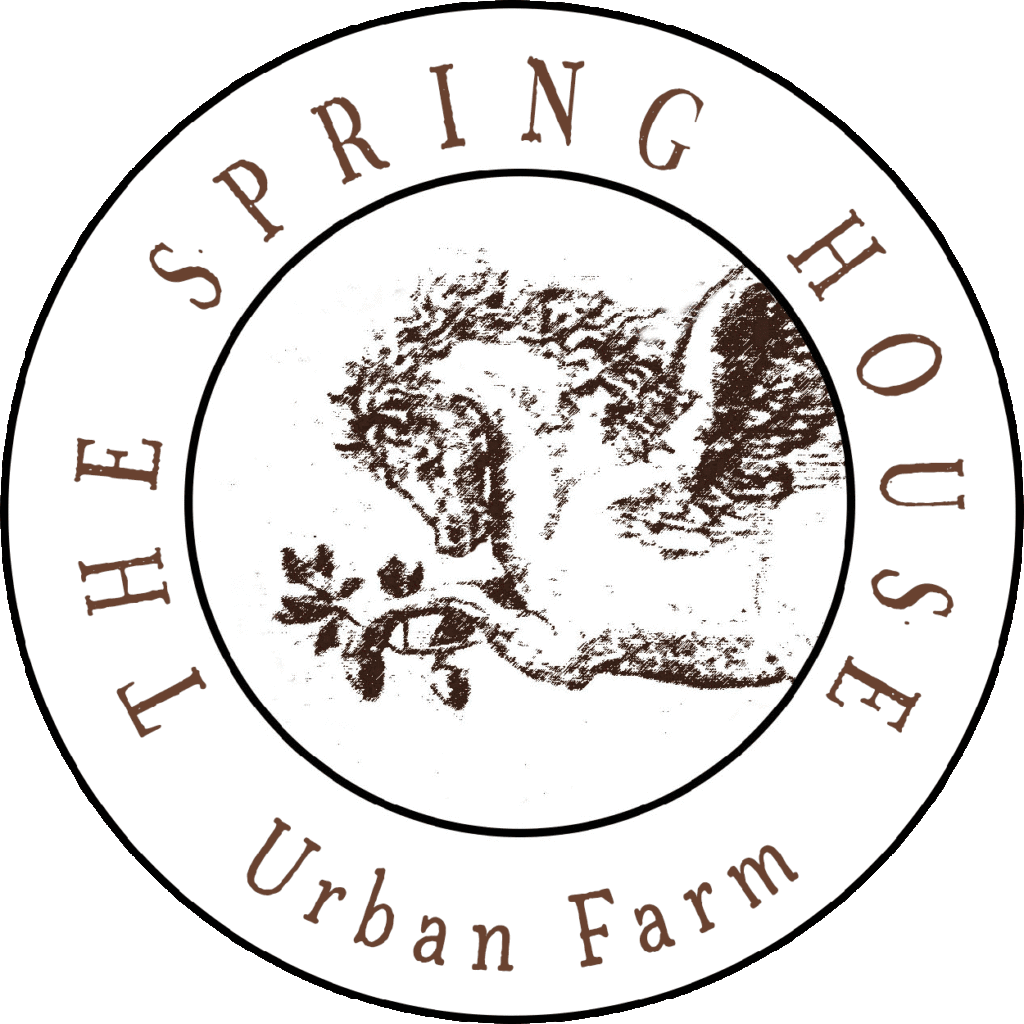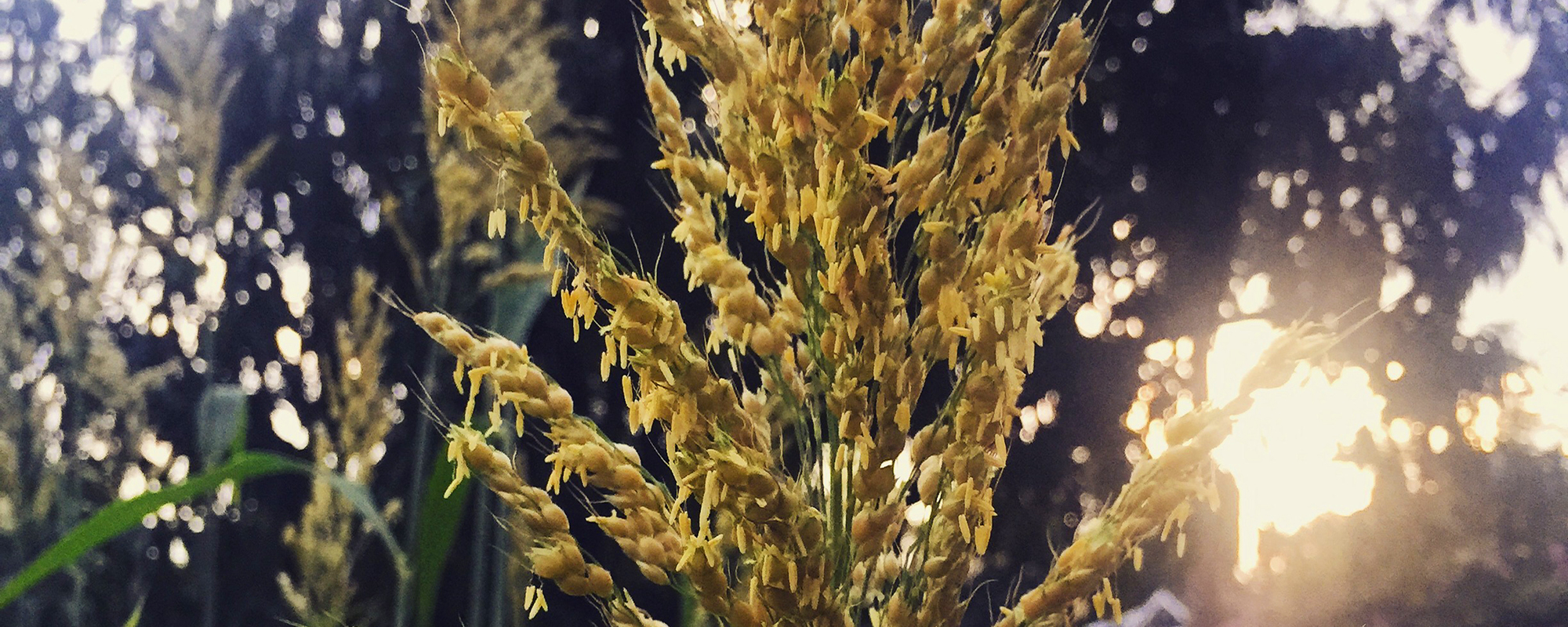
We grow food both for ourselves and to share with others. Our little urban farm is one large experiment in making the world a better place by engaging with the plants and people around us in ways that benefit both. All plants and crops are grown organically (non-certified) in a biodiverse environment. No chemical fertilizers, herbicides, fungicides, pesticides, or GMO seeds or plants are ever used. We also do not “baby” our crops, and rarely water, fertilize, or treat for pests, even with safe or organic ones. (The only exceptions to that are when we may be at risk of losing entire crops, due to some unusual weather or other event.) Because we save seeds, we want to continue working with seeds who are able to survive in our challenging environments.
It is also important to use to work with varieties that are important to protect, such as many Slow Food Ark of Taste crops, as some of these crops, while often not commercially viable, may be important to future food sovereignty.
We have also been involved in some landrace projects both other organizations, and some of our own experiments to help build genetic diversity, and to help to discover varieties that do well in our area, and that have great adaptability to the changing climate stressors in our environment.
That may mean that even when we plant something that ends up as a “crop failure” with only a few plants surviving, that rather than viewing that as a negative event, we see those survivors as plants that had the resilience to endure and ones that we cherish the seed from. We feel it is important work to identify and keep seed from plants that show exceptional vitality, and that are able to survive some of the challenges of our changing climate. Working with these seeds and their wisdom can help take us into the future together.

As we grow food and medicine, we try to be mindful not to see these plants as “resources”, but we try to honor the plants that support our life by saving seeds to ensure their survival into the future. We sing to them as we plant them and offer gratitude when they share their bounty with us at harvest time.
At The Spring House we not only actively caretake seeds, and participate in the seed tending community through many of the organizations that you will find on our resources page, but we believe in the rematriation of seeds, and plants both locally and beyond, as an extension of our work here as well. Every year The Spring House also donates seeds, plants, and part of our harvest with our local community.
PROJECTS
Participant of
The Utopian Seed Project – Heirloom Collard Project 2021-2024

We grow food both for ourselves and to share with others. Our little urban farm is one large experiment in making the world a better place by engaging with the plants and people around us in ways that benefit both. All plants and crops are grown organically (non-certified) in a biodiverse environment. No chemical fertilizers, herbicides, fungicides, pesticides, or GMO seeds or plants are ever used. We also do not “baby” our crops, and rarely water, fertilize, or treat for pests, even with safe or organic ones. (The only exceptions to that are when we may be at risk of losing entire crops, due to some unusual weather or other event.) Because we save seeds, we want to continue working with seeds who are able to survive in our challenging environments.
It is also important to use to work with varieties that are important to protect, such as many Slow Food Ark of Taste crops, as some of these crops, while often not commercially viable, may be important to future food sovereignty.
We have also been involved in some landrace projects both other organizations, and some of our own experiments to help build genetic diversity, and to help to discover varieties that do well in our area, and that have great adaptability to the changing climate stressors in our environment.
That may mean that even when we plant something that ends up as a “crop failure” with only a few plants surviving, that rather than viewing that as a negative event, we see those survivors as plants that had the resilience to endure and ones that we cherish the seed from. We feel it is important work to identify and keep seed from plants that show exceptional vitality, and that are able to survive some of the challenges of our changing climate. Working with these seeds and their wisdom can help take us into the future together.

As we grow food and medicine, we try to be mindful not to see these plants as “resources”, but we try to honor the plants that support our life by saving seeds to ensure their survival into the future. We sing to them as we plant them and offer gratitude when they share their bounty with us at harvest time.
At The Spring House we not only actively caretake seeds, and participate in the seed tending community through many of the organizations that you will find on our resources page, but we believe in the rematriation of seeds, and plants both locally and beyond, as an extension of our work here as well. Every year The Spring House also donates seeds, plants, and part of our harvest with our local community.
PROJECTS
Participant of
The Utopian Seed Project – Heirloom Collard Project 2021-2024

